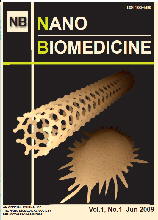Synopsis
It is widely known that carbon nanotubes (CNTs) have various characteristics, and many studies had reported about biomaterial application of CNTs for that biocompatibility. The increase of alka-line phosphatase activity and well adhesion extension were confirmed when cell culture experi-ments were carried out on CNTs. It indicated that one of the most important factors to affect on biocompatibility of CNTs is the adsorption of proteins. To investigate the adsorption behavior of proteins to CNTs, liquid chromatography method was applied in this study. CNTs that purity was less than 70% and had a curled shape were used. Thermal and acid treatments were required to remove impurities such as amorphous carbon and metallic catalysts. It was also aimed whether the pretreatment conditions affected the adsorption behavior of proteins. CNTs with only acid treatment showed much stronger adsorption to proteins. CNTs with only thermal treatment and CNTs with thermal and acid treatment also showed the same adsorption behavior. On the other hand, CNTs with prolonged thermal treatment and acid treatment showed weaker adsorption to proteins. CNTs that purity was more than 95% and had a straight shape were also experimented in contrast. The adsorption of proteins was not confirmed. The results suggested that affinity to proteins af-fected by the difference of morphology and conditions of purification treatment of CNTs.
Key words: carbon nanotubes, purification treatment, protein, adsorption, chromatography
